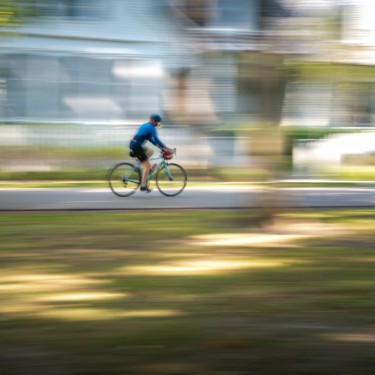
The National Challenge
Social Justice Extends to Health and Wellness.
RFU works every day at the intersection of education and health, and that’s where we can make the greatest impact. We must continually transform how we recruit, educate and train future health professionals who will practice in shared responsibility and lead change to improve the health and well-being of our most vulnerable populations.
Health equity is the fair and just opportunity for all to live their healthiest lives. It demands the removal of obstacles to health, including poverty, discrimination and the chronic stress and other consequences of those systemic ills. Widespread inequities, including lack of essential resources and access to health care, weaken our social fabric, drive high costs and cut lives short. They underlie and fuel pandemics like COVID-19, in addition to current epidemics of chronic disease, opioid misuse and mental illness.
The year 2020 brought a national reckoning around racism and shined a spotlight on the business of health care and the failure to honor the social contract for human health and wellness. SARS-CoV-2 — a novel, cunning and unpredictable virus — preyed on the inequities among people and spread like wildfire across communities, revealing the poor health of many populations, particularly among Black, Indigenous and people of color (BIPOC) who suffer the highest rates of COVID-19 infections and deaths. Meanwhile, community-based and national movements, such as Black Lives Matter (BLM), brought new momentum to the fight against police brutality and racial inequality in the wake of the killing of Mr. George Floyd. The convergence of the pandemic and civic engagement has helped communities understand as never before the impact social determinants of health play in our ability to live long and fruitful lives. It has pushed the pursuit of health equity to the top of the healthcare agenda across local, state and national levels.
Health care is at a tipping point. It cannot continue with business as usual. For the last 40 years, the healthcare industry has focused on how to rein in costs and still provide care. This year, that question has been flipped and expanded: How do we change the delivery of care to promote and sustain community wellness?
RFU looks to build multi-sector, community-based interventions to advance population health. We’re already doing this work through our Community Care Connection mobile health outreach, our Interprofessional Community Clinic for the uninsured and the efforts of many student organizations. We must do more. We will continue to rely on our community partners to provide context on barriers to health and to improve access to resources, including healthy food, safe housing, affordable health care and educational opportunities. Together, we can strengthen prevention and promote wellness.
Research shows that diversification of the healthcare workforce is key to addressing health disparities. We are committed to that cause and encouraged by strong interest and participation in our pathway programs and pipelines for local underserved students, including our applied research summertime initiative, INSPIRE.
We can continue to improve health and well-being by educating students from our surrounding communities who will join our local and regional workforce to earn the trust of their patients by providing compassionate, culturally competent care. Good-paying jobs in health care can also help improve lives and the well-being of families and communities.
It’s only through partnership across sectors that we can hope to solve complex health issues fueled by systemic injustice. Improving health and well-being and expanding the pipeline of clinicians and researchers who identify as BIPOC at every level of training and practice can help achieve health equity — and hopefully prevent a once-in-a-lifetime pandemic in every lifetime.
The Social Determinants of Health
- Economic stability
- Education
- Health and health care
- Neighborhood and built environment
- Social and community context
Employment Projections(in thousands) by major occupational group |
Essential Inquiry
Working Toward More Equitable Health Treatment and Outcomes.
Our mission begins close to home, where we are guided by the needs of the communities we serve and where we are working to identify and break down barriers to health. We’re bringing together partners, in a very focused way, to create local community impact on the social determinants of health, which account for 85% of chronic disease. Two new academic programs, now in the planning stage, will help us achieve that goal.
We’re collaborating with regional academic and clinical partners on the expansion of our nursing programs and development of a new College of Nursing. The addition of a lifestyle medicine program is also on our horizon. Our collective vision for nursing includes strengthening the high school-to-college pathway in northern Lake County, with stewardship of underserved students through Lake Forest College and into RFU under our joint Health Professions Program. Drawn from and intent on serving our most vulnerable communities, these students can help address structural barriers by offering culturally competent care.
Understanding trends in society, health care and the needs of our people — and more specifically the needs of our nearby communities and region — is what really motivates us to pursue a healthier future.
Our proposed School of Lifestyle and Rehabilitative Medicine can also help us tackle the health disparities that underlie so much chronic disease in our communities and nation. We must educate health professionals across disciplines who are fluent in the lifestyle approach to good health: a whole-food, plant-predominant diet; regular physical activity; restorative sleep; stress management; substance avoidance; and positive social connections — all which can aid the treatment and reversal of chronic disease.
“RFU is uniquely positioned to take up lifestyle medicine and integrate its concepts across our interprofessional, team-based educational environment,” said RFU President and CEO Wendy Rheault, PT, PhD, a diplomate of the American College of Lifestyle Medicine. “We want to train health professionals who will in turn integrate those concepts into their practices and across communities to help everyone live their healthiest life.”
